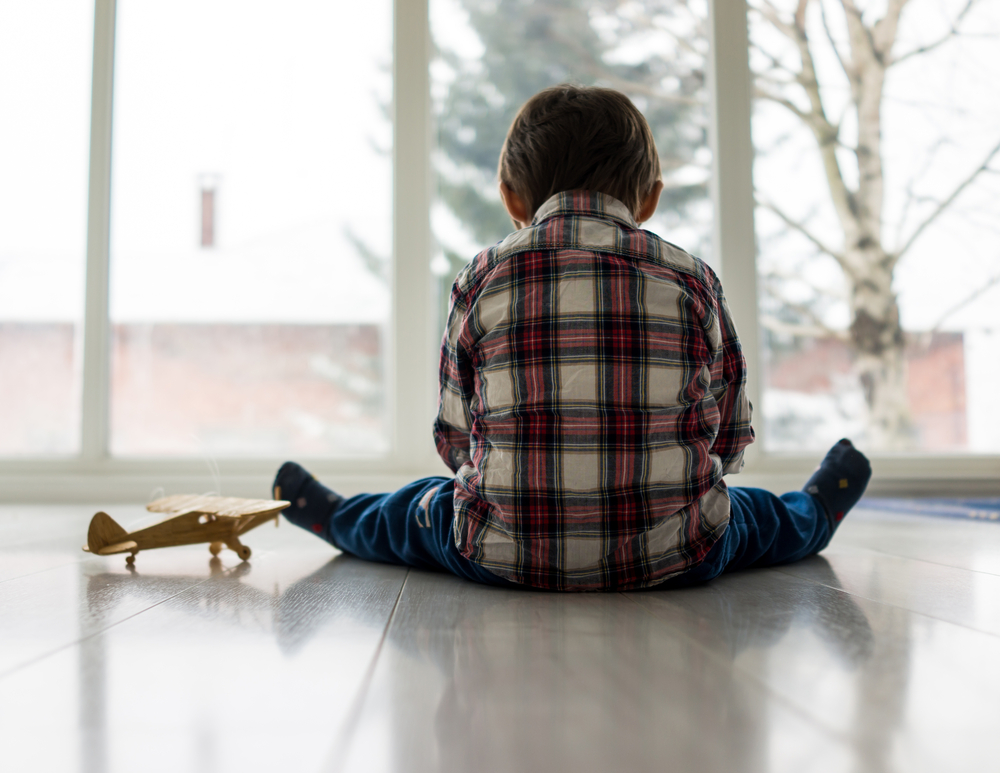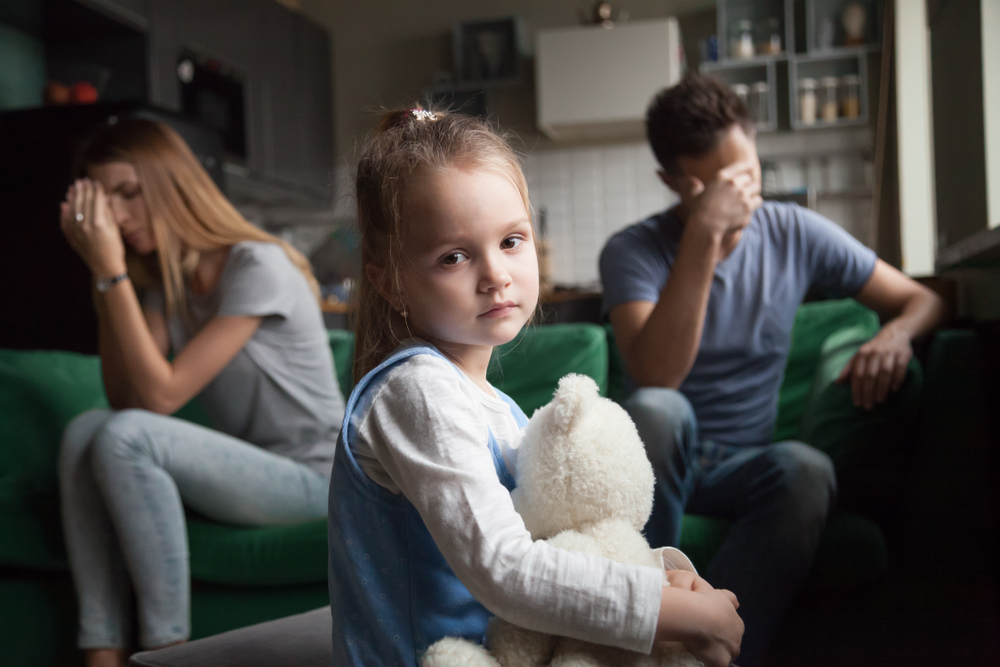As parents, we’ve all done it. We’ve blown up at our kids. We’ve handled a situation in a way that was desperately wrong. And we need to apologize. Depending on your personality and how you grew up this can be really difficult. But no worries—we’re here to help. Here’s your 10-step, play-by-play guide on how to (genuinely) apologize to your kids.
1. Remove yourself from the situation.

Often, this will mean physically stepping away. If your children are small and prone to chaos/destruction, make sure they’re safe, and then take a moment to yourself. While modeling healthy emotional management is important, sometimes it’s better for you to do it alone. And that’s fine.
2. Take deep breaths to regulate yourself.

Make like Bluey and get rid of all the “upset.” Do some deep yoga-breathing, some centering exercises, whatever you need to do. But get the aggressive emotion gone. Anger clouds reality, and you won’t accomplish anything by wallowing or fuming in it.
3. Replay what happened.

This is difficult, but try to be objective here. What actually happened? Did your child actually do something wrong? Or have you just had a really terrible day? It’s so important that we parent based on reality, not just our emotions—which is easier said than done!
4. Consider your own triggers.

So, maybe they didn’t do anything wrong. Or, even if they did, this is still relevant. Consider your own triggers. Was cleanliness prioritized over people in your house growing up, and as a result the (literal) spilled milk makes you fly off the handle? Even if they intentionally ignored your instructions and used a dining chair to climb on the counter and dump out a gallon of milk…we, as the parents, still can’t lose our minds at them.
5. Ask yourself, “Does this match my vision for their childhood?”

Now, no vision is really ever perfectly realized. That’s just the nature of being a human. But it’s still an important thing to ponder. Do you want your kids’ childhoods to be full of yelling and punishments? How do you think this is going to affect your relationships with them down the road? This isn’t to beat yourself up, by any means. But you can’t fix something if you don’t know how it’s broken.
6. Seek out your kids, and get on their level.

Don’t make them come to you. Find them, and get literally on their level (speaking in terms of height). Let them see that physical display of humility. Kids often put mom or dad on a pedestal, but it’s important to show them that we’re human, too.
7. Let them hear the words, “I was wrong.”

Do not, for the love of all things, say “I’m sorry you feel…” That’s not an apology. Tell them that you were wrong in how you handled that situation and what you said. This humility and vulnerability are vital for your kids to see and can help foster mutual respect between you and them. Make it a real apology!
8. Emphasize how much you love them.

Not as an excuse for how you acted (“I yelled because I love you”), but as the reason why you’re apologizing. “I love you, and I’m sorry, and I love you too much to let you think anyone can treat you that way.” Rooting your apology in love is absolutely essential!
9. Make a verbal commitment to change—and stick to it!

Make this specific! Maybe you can brainstorm some ways to keep the entire situation from happening again. Or maybe you just tell them that in these situations, you’ll be taking a moment away to compose yourself in order to speak respectfully. There are a thousand ways to do this. But whatever strategy you commit to, stick to it! Your kids need to see that their parent means what they say and keeps their promises.
10. Give yourself (and them) grace.

You’re learning to be a parent. And they’re learning to be people. Really, you’re still learning to be a person, too. Everyone on the planet is constantly having to learn that, actually. As we grow and change, we have to learn how to live as these new versions of ourselves. And learning often includes a learning curve. You don’t have to be perfect. You just have to be trying, and growing, and loving. That’s what matters.




